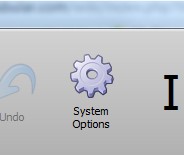Difference between revisions of "VTube Report Template Location"
From ATTWiki
| Line 21: | Line 21: | ||
<tr valign=top> | <tr valign=top> | ||
<td width=300> | <td width=300> | ||
| − | + | Click on System Options | |
| − | + | ||
| − | + | ||
| − | + | ||
| − | + | ||
| − | + | ||
| − | + | ||
| − | + | ||
| − | + | ||
| − | + | ||
| − | + | ||
| − | + | ||
| − | + | ||
| − | + | ||
| − | + | ||
| − | + | ||
| − | + | ||
</td> | </td> | ||
<td width=300> | <td width=300> | ||
| − | [[image:vtube- | + | [[image:vtube-systemoptions_gear.jpg]] |
</td> | </td> | ||
</tr> | </tr> | ||
Revision as of 16:14, 5 March 2013
|
Contents |
|
Click on System Options |
When NOT to Use DampingDamping is not helpful if your tube does not have the characteristic shape shown above. If the tube you are measuring does not have short straights that are basically "jogs" or offsets in longer sections of tubes, then you should turn damping off by unchecking the damping check boxes and/or ignoring all damping report data.
|
Other Pages
- Back to VTube-LASER



